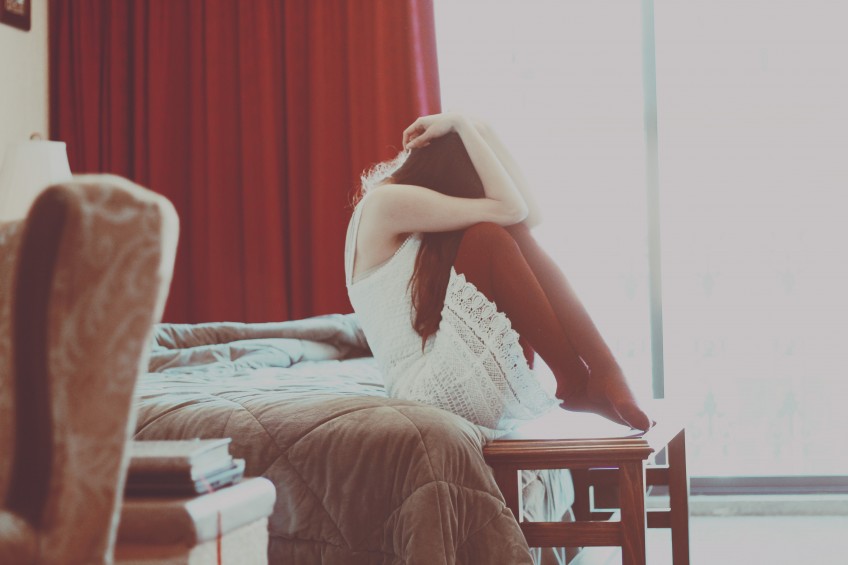How late can you report sexual assault and harassment? Are photos or recordings legal?


In recent months, we've seen a lot of cases of sexual assault and harassment, especially those involving students.
But what we know are cases where the perpetrator was reported or caught in action. There could be more we are not aware of-not all victims file a report.
Devika Panicker, spokesperson for Aware's Aim For Zero campaign, explained why at a panel session in January, Real Conversations for Real Change, part of a final-year project by a group of undergraduates at Nanyang Technological University's Wee Kim Wee School of Communication and Information.
She said, "When it comes to responding [in the moment], people usually have three responses: fight, flight or freeze. Most survivors are in shock that it is even happening and it's a lot to process and you wonder 'Am I overreacting? Why is my body showing signs of arousal? Do I want it?'
"[As for reporting after the incident,] when the perpetrator is someone close to you, you start caring about how this is going to implicate them. You start to wonder how is this going to affect their life and their career. You want to prevent something so drastic [like going to jail] from happening. You fear the reaction from family members, from friends, from perpetrators themselves. You don't want to complicate things even more.
"When you're sexually assaulted or harassed, it's forced upon you and you are very powerless. When you pressure [survivors] to report it, you're making them feel even more powerless. You need to let them make their own decision to restore this power to them."
Sylvie Lian, clinical psychologist at Psych Connect, agrees: "There's no right way to respond and expecting [survivors] to know the 'right' way to respond can be traumatising. When you think there's a 'right' way, you're making it more pressuring for yourself."

If the victims choose to come forward, sometimes, the topic of consent is brought up, like in some of Harvey Weinstein's cases.
Devika said, "We practise consent very often in life, example in school, there are consent forms, and in hospitals, there are consent forms too. As a community, we practise consent quite frequently and the same thing should be practised in our sexual lives."
She added, "If we create communities that are OK with talking about sex and consent and distance it from the taboo that it used to be, we are able to have better conversations. I am now able to better draw boundaries because I understand consent. As survivors, we tend to believe that if we bring certain things up, then we are painting people as bad people but we need to know that good people can do bad things as well."
So what exactly is consent and who decides if there was consent?
Priscilla Chia, litigator and volunteer lawyer with SACC, said: "The issue of consent is very heavily contested when someone is facing charges. There's usually very little direct evidence and it's a very 'he said, she said' matter."
She added that under the law, there is a logical understanding of what consent is. For example, when you're intoxicated, you don't have the mental capacity; when you are unconscious or you're not able to understand the nature and logic of what consent you're giving, or when your consent is given under misconception of fact.
She said: "You not reporting to police [immediately] won't be used against you [in court]. There's no set behaviour for survivors and the courts have been quite empathetic that even if the survivor doesn't seem to be traumatised, it is not indicative of anything."
The good news is, victims are better protected nowadays.
Jennifer Chih, Senior Lawyer & Director at PK Wong & Nair LLC; said: "[Back then], I didn't have the POHA (Protection from Harassment Act) with us and basically, we had to deal with harassment in our own ways. Most people forget or just move past it but every incident makes people a little more angry and a little more capable to deal with the next incident.
"If you feel that you're constantly harassed, that's one case you might consider applying for a protection order. You can apply for this on your own without engaging a lawyer. There are centres in Singapore that help you go through this process. Once you file the paperwork and the whole procedure starts, you can't just decide you want to stop.
"You need to know the identity of the harasser to serve the documents to them. You have to sit in a mediation with the both of you [there at the same time]. It will take a while and it goes forward to a hearing. A judge makes the decision for the outcome, whether you like it or not. For the protection order, it is either you get it or you don't. So you might go through the entire process but not get it."
Apart from POHA, another way that victims are better protected is through mobile devices. Jennifer says that mobile devices act as recording devices, so it's easier now to take down evidence of harassment or assault if you wish to press charges or file for a protection order.
When asked about the legality of recordings and photographs, she advised, "It's better to have the recording and photograph and then you can talk about it in court whether it's legal or not. It is better to not have it than not at all and it becomes a 'he said versus she said' scenario again."
This article was first published in CLEO Singapore.